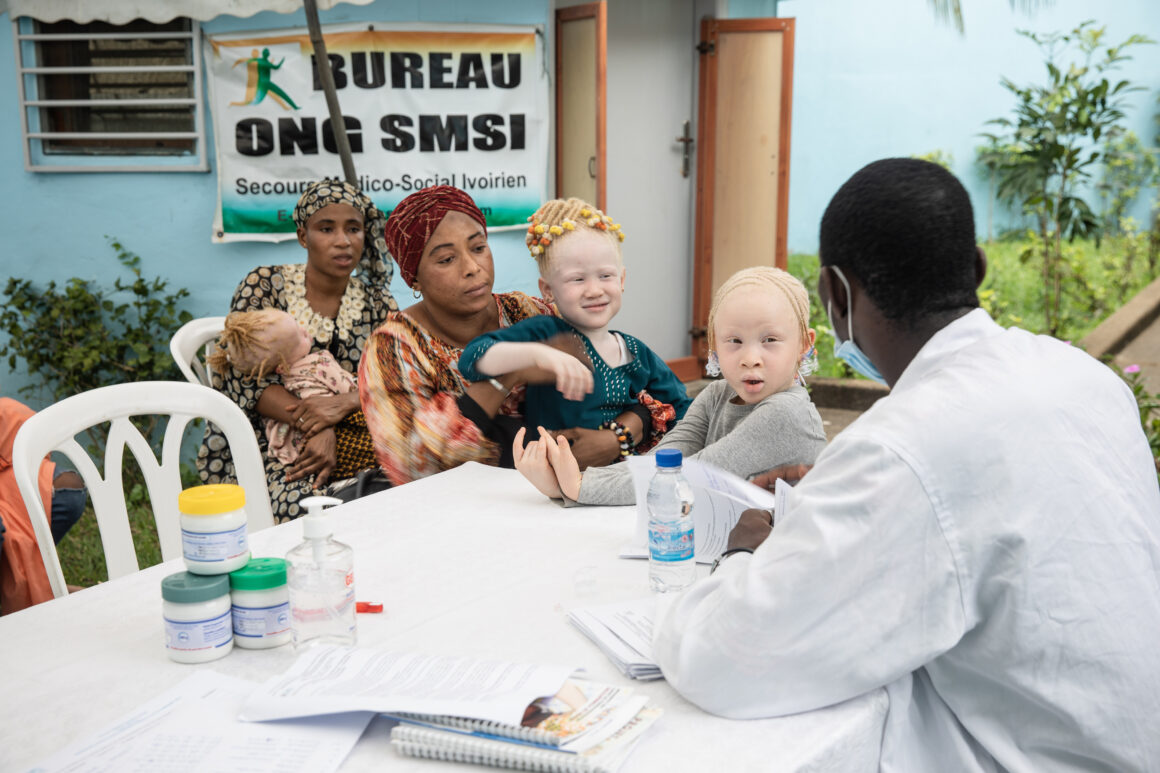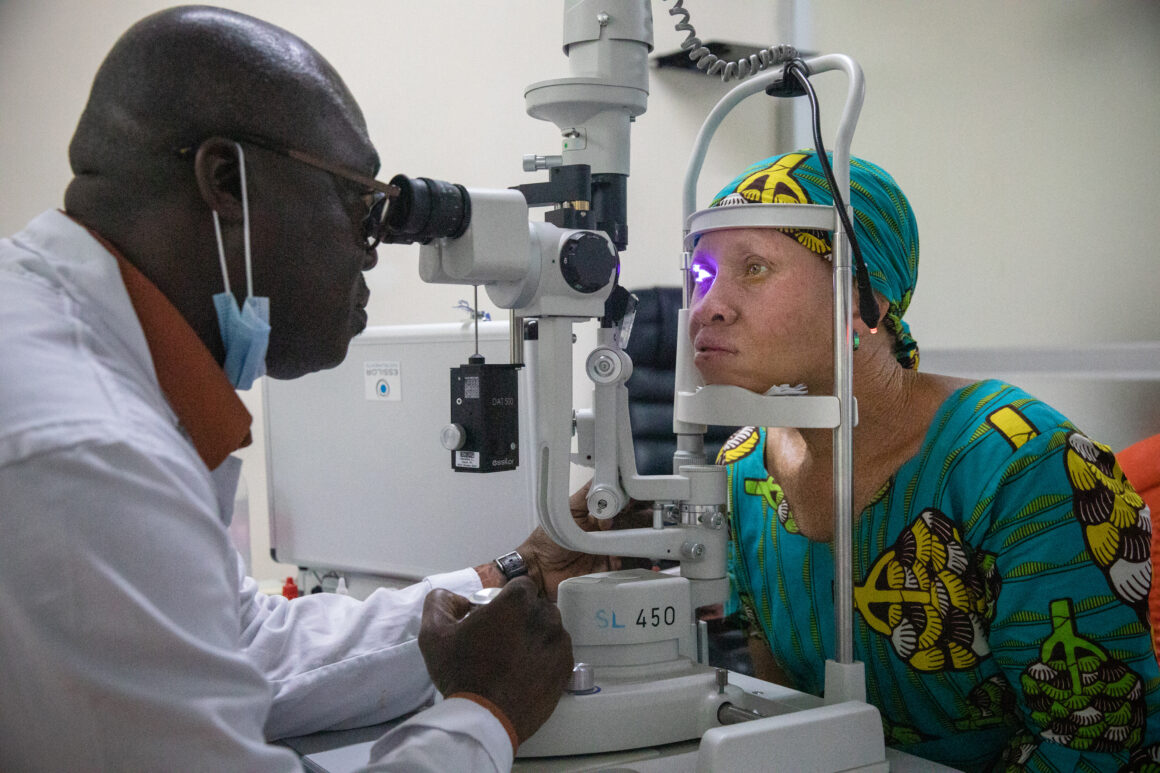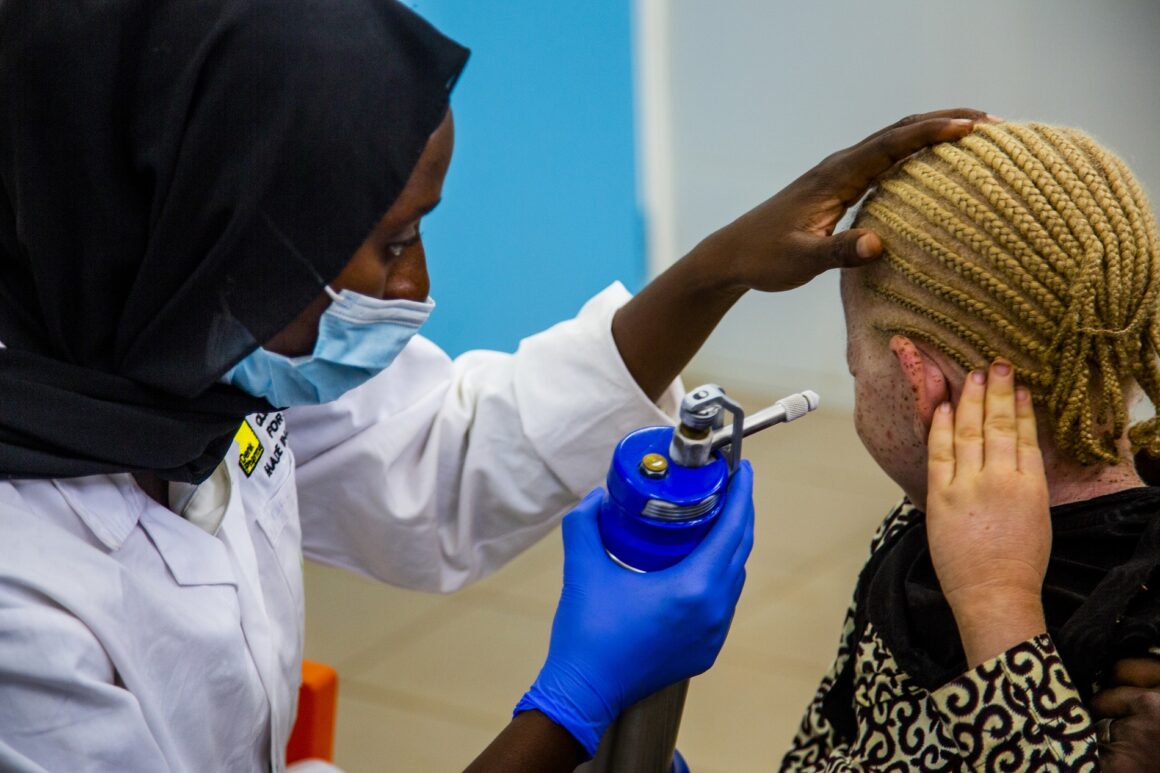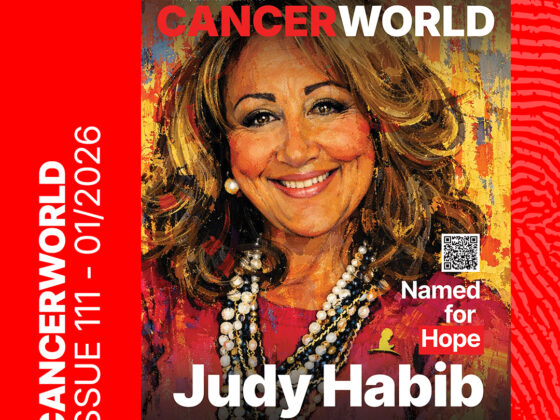People with albinism in Africa face many obstacles, including a significantly higher risk of skin cancer due to intense sun exposure and lack of melanin, making prevention and access to protective care essential. CancerWorld journalist, Esther Nakkazi, explores some of the problems and what is being done to overcome them.
People with albinism face a disproportionate risk of skin cancer, as they lack the protection that melanin confers against the sun’s ultraviolet rays. In Africa, the risk levels are particularly high due to the continent’s intense sunlight.
Incidence rates are up to four times higher in this population than among people with albinism living in other parts of the world, with cancer often developing at a relatively early age.
“This is a silent killer. Many PWA [people with albinism] in Africa die from cancer, but this is probably one of the least talked about issues,” says Béatrice Garrette, the chief executive officer of the Fondation Pierre Fabre – a French public interest foundation that is promoting efforts to highlight the unmet needs of this population, and working with governments and agencies to address them.
A recently published meta-analysis by Panawé Kassang, head of dermatology at the Regional Hospital of Kara, in Togo, and the deputy general secretary of the Togolese Dermatology Society, analysed available data to provide insights into the extent of the problem.
“Of all skin cancers reported worldwide in PWA, over 80% have been reported in people with albinism living on the African continent,” Kassang told.

The study funded by the Fondation Pierre Fabre – a majority shareholder in the French pharmaceutical and cosmetics company Laboratoires Pierre Fabre – found that, of the 1,143 skin cancer cases identified in the review, 87% were reported in Africa. The most common type was squamous cell carcinoma at 56.7%, followed by basal cell carcinoma at 37.4% and melanoma at 3.4%. The high frequency of squamous cell carcinoma in Africa contrasts with Europe and America, where basal cell carcinoma is more prevalent.
“Squamous cell carcinomas, which are the most dangerous, are the most common in people with albinism worldwide, and cutaneous melanoma – a type of cancer quite rare in Black Africans – is also rare in people with albinism in Africa. Further studies are needed to confirm this finding and understand its causes,” says Kassang.
The study also found that the average age at which a skin cancer is diagnosed in people with albinism is only 40 years, which is much younger than for the general population. “To our knowledge, our study is the first in the world to provide global data by continent on skin cancers in people with albinism,” says Kassang, who adds that getting access to unpublished data for the meta-analysis had been a major challenge.
“We believe that there are associations or non-government organisations that have interesting data but which are not published,” he says.
Gathering the Data
Accurate data is always crucial for advocacy and policy change. While some figures exist, they are often outdated and incomplete, making it difficult to fully understand the scale of the problem.
Garrette says that no comprehensive epidemiological study has been done in any country to accurately determine the number of people living with albinism. “Most available data come from albinism associations, which only provide estimates based on their registered members.”
One possibility would be to include specific questions on albinism in national censuses, to find out how many people are affected, where they are located, and what resources they need, says Garrette. In Rwanda, the 2022 national census recorded 1,860 people with albinism over the age of five. However, the rates of skin cancer remain unknown, since it’s not routinely detected at district hospitals, says Nikodeme Hakizimana, Founder and Executive Director of the Organization for Integration and Promotion of People with Albinism in Rwanda.

Promoting Access to Protection
It is through the dermatology research carried out by Laboratoires Pierre Fabre that the Fondation Pierre Fabre, which aims to promote better access to medicines and care in the Global South, got interested in the situation of people with albinism.
In 2015, the foundation started a programme for providing PWAs with dermatological care, access to early detection and management of skin cancers, through close collaboration with local associations, communities, and clinicians.
It is now working with some African governments to facilitate the local production of sunscreen, as well as empowering local associations to advocate for imported sunscreen to be made available free of tax.
Garrette argues that production should be decentralised, with each country having several production units. The Fondation Pierre Fabre has worked with Laboratoires Pierre Fabre to develop an open-source formula, publicly available for anyone to use or modify.

“This formula is proven to be highly protective, as we have tested its effectiveness. Additionally, we can assist research departments in pharmacies to develop their own formulas while ensuring a high level of quality control,” says Garrette.
A crucial aspect of this initiative is involving the faculty of pharmacy in the production process. This ensures proper quality control, which can be overseen by trained professionals, university faculty, or governmental agencies responsible for medicine regulation. Garrette emphasises how important maintain high standards to guarantee the level of protection needed.
In Togo, the foundation has implemented and financed the Albitogo project, where the creams are produced locally by the Association of People with Albinism and made available free of charge. “Since it was implemented, we have noticed a clear reduction in the number of skin cancers over the years,” says Kassang.
Other countries taking action include Malawi, where the government distributes free sunscreen to PWAs and in Rwanda, it is provided through public insurance.
In Tanzania, a project led by the charity Under the Same Sun, partnering with local organisations, is focusing on access to high-quality education. Part of the charity’s work is to make sure all the students they support are fully aware of the dangers of exposure to the sun as well as proper ways to keep themselves protected.
“We work with the schools that they are attending as well as a partner organisation in Tanzania to ensure they receive skin and vision check-ups every year,” says Francis Tiangson, Fundraising Manager at Under The Same Sun.
The vision check-ups are very important, he adds, as people with albinism commonly suffer from problems with their eyesight, including short-sightedness. These can be so severe as to meet the legal qualification for blindness.
Garrette agrees on the importance of addressing barriers to accessing education. “Their needs require a more holistic approach,” she says.












